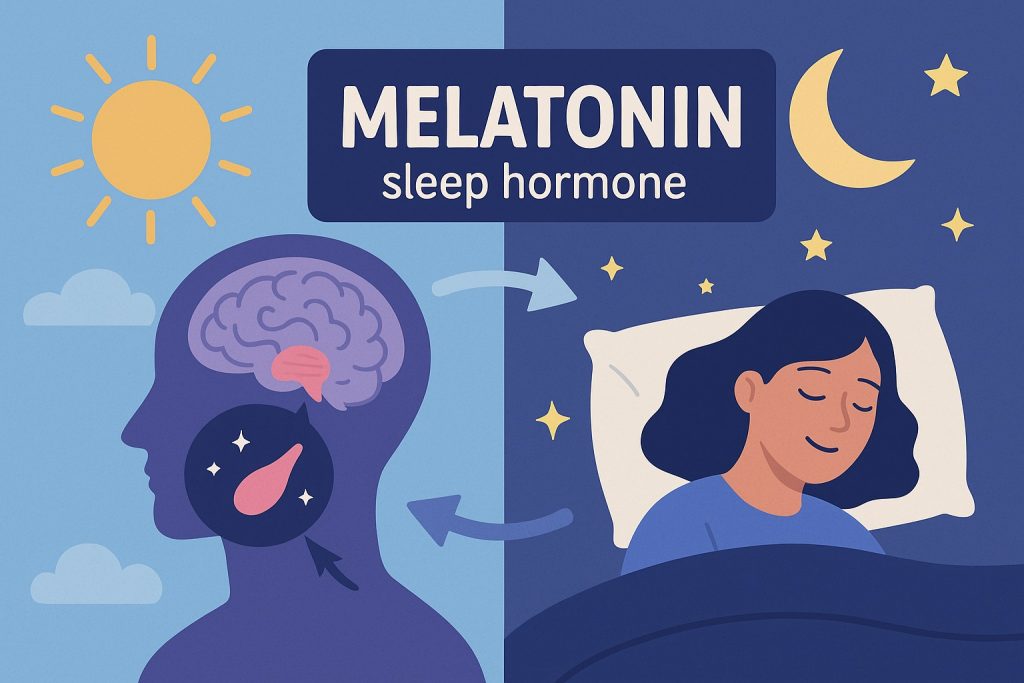Melatonin is a natural hormone produced by the human body that plays a critical role in regulating sleep. Often called the “sleep hormone,” melatonin controls your internal clock and tells your body when it’s time to sleep and wake. Melatonin also affects other aspects of health, including mood, metabolism, and immune function. In this article, we’ll explore what melatonin is, how it works.
What Is Melatonin?
Melatonin is a hormone secreted primarily by the pineal gland in the brain. Its production is triggered by darkness and suppressed by light. As evening falls, melatonin levels rise, promoting drowsiness. In the morning, light signals the brain to stop melatonin production, helping you wake up.
How Melatonin Regulates Sleep
Melatonin helps control the circadian rhythm, your body’s internal 24-hour clock. This clock regulates:
- Sleep-wake cycles
- Hormone release
- Body temperature
- Eating patterns
People with disrupted circadian rhythms — due to jet lag, night shifts, or screen exposure before bed — may not produce melatonin at the right times, leading to sleep problems.
Natural Melatonin Production
Melatonin levels are highest at night, typically between 9 PM and 3 AM, and lowest in the morning. Factors that reduce natural melatonin production include:
- Blue light from screens and artificial lighting
- Aging – older adults often produce less melatonin
- Stress and anxiety
- Shift work or irregular sleep patterns
Natural Ways to Boost Melatonin
- Reduce exposure to screens and bright light 1–2 hours before bed
- Get sunlight in the morning to strengthen circadian signals
- Keep your bedroom dark and cool at night
- Stick to a consistent sleep schedule
- Eat melatonin-rich foods: tart cherries, grapes, walnuts, oats, and tomatoes
Conclusion
Melatonin is a powerful biological signal that helps your body know when to sleep and wake. Supporting your natural melatonin rhythm through light exposure, sleep hygiene, and lifestyle habits is often the most sustainable solution for long-term sleep health.
Glossary
- Melatonin – a hormone that helps regulate the sleep-wake cycle
- Circadian rhythm – the body’s internal clock that regulates daily cycles
- Pineal gland – a small gland in the brain that produces melatonin
- Jet lag – temporary sleep disorder caused by traveling across time zones
- Sleep hygiene – behaviors and environment that support healthy sleep


